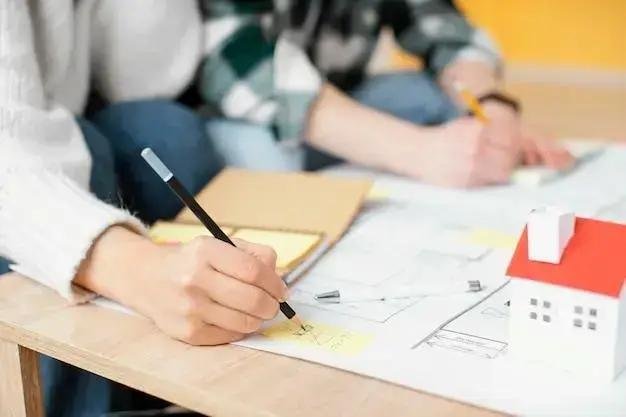The Best Way To Learn Piano can vary from person to person, but understanding foundational techniques is crucial for everyone.
By exploring different methods and setting achievable goals, you can enhance your musical journey.
Effective practice habits and available resources play a significant role in mastering the piano.
In this article, we will uncover valuable insights into each of these aspects to help you become a proficient pianist.
Understanding the Basics of Piano Learning
Understanding the basics of piano learning is essential for every aspiring musician. First, it’s important to familiarize yourself with the piano’s layout, including the keys and their corresponding notes. The white keys represent natural notes, while the black keys indicate sharps and flats. A solid grasp of music theory, such as scales and chords, enhances your ability to play and understand music.
Next, consider the importance of proper posture and hand placement. Make sure to sit at the right height with a straight back. Your fingers should rest on the keys with a natural curve. This will help prevent fatigue and injuries as you practice.
Practice is crucial. Start with simple exercises, focusing on finger strength and agility. Gradually work your way up to simple songs that incorporate the skills you’ve learned. Remember, patience is key. Learning piano is a journey, and consistent effort will yield the best results.
Exploring Different Learning Methods
When exploring different learning methods for piano, it’s crucial to find the right approach that suits your learning style. There are several methods, such as traditional lessons with a teacher, self-learning through online courses, or using apps designed for piano education. Each of these methods has its own strengths and weaknesses.
Taking lessons from a skilled piano teacher can provide personalized feedback and structured learning, allowing you to progress steadily. However, this option can be costly and requires scheduling.
Self-learning through online platforms gives you flexibility to learn at your own pace. Websites and YouTube channels offer a wealth of tutorials and resources. This method encourages independence, but it requires discipline and self-motivation.
In recent years, piano learning apps have gained popularity. These apps often gamify the learning process, making it fun and engaging. They can be especially beneficial for beginners looking to develop their skills without much guidance.
Ultimately, the best method is one that keeps you motivated and excited about learning. Consider trying a combination of approaches to see which works best for you.
Tips for Practicing Effectively
When it comes to tips for practicing effectively on the piano, consistency is key. Establish a regular practice schedule that fits into your daily routine. Even short, focused sessions can yield better results than infrequent, longer practices.
Define clear objectives for each practice session. This could include mastering a specific piece, working on technique, or improving your sight-reading skills. Focusing on these goals helps you track progress and stay motivated.
Start each session with warm-up exercises. This can include scales, arpeggios, and finger drills, which strengthen your fingers and improve dexterity. Warm-ups prepare your hands and mind for more challenging pieces.
Break difficult pieces into smaller sections. Tackle each section separately before trying to piece them together. Practice slowly at first, gradually increasing speed as you gain confidence.
Incorporate a variety of music styles into your practice. This exposure enhances versatility and keeps your sessions interesting. Finding enjoyment in different genres can motivate you to practice more.
Setting Realistic Goals for Your Piano Journey
Setting realistic goals for your piano journey is essential for sustained motivation and progress.
Start by identifying what you want to achieve with your piano playing. Are you aiming to play a specific piece, improve your technique, or perhaps perform at an event? Setting clear objectives gives you direction.
Break these larger goals into smaller, manageable milestones. For instance, if you want to play a complex piece, divide it into sections and tackle each one separately. This approach makes the learning process less overwhelming and helps maintain focus.
Time-bound goals can also enhance your practice routine. Decide on a timeline for each milestone. This encourages accountability and enables you to track your progress effectively. Remember to celebrate small achievements along the way; this boosts confidence and keeps you motivated.
Additionally, be flexible with your goals. As you progress, you might find new interests or face unexpected challenges. Adjust your goals as needed, ensuring they remain achievable and relevant to your journey.
Advanced Techniques and Resources
Advanced techniques and resources play a pivotal role in elevating your piano skills once you’ve mastered the basics. Utilizing these methods can significantly accelerate your learning process and deepen your understanding of music.
One effective technique is playing by ear. This skill allows you to identify melodies and chords without relying heavily on sheet music. Start with simple songs, listen carefully, and try to replicate them on the piano. This practice improves your auditory skills and enhances musicality.
Another valuable technique involves improvisation. Once you are comfortable with scales and chords, experiment with creating your own melodies. Improvisation encourages creativity and helps you develop a personal style.
In addition to these techniques, many resources are available to assist your learning. Online platforms offer a variety of tutorials, sheet music, and practice tools tailored to your needs. Consider joining forums or social media groups where you can connect with other piano enthusiasts, share experiences, and gain insights.
Lastly, seek out masterclasses and workshops. Participating in these events exposes you to advanced concepts and techniques taught by experienced musicians. Engaging with the music community can inspire and motivate you to reach new heights in your piano journey.
Wrapping Up Your Piano Learning Journey
In conclusion, learning the piano is an exciting and fulfilling journey. By understanding the basics, exploring different learning methods, implementing effective practice strategies, and setting realistic goals, you can make significant progress.
Advanced techniques and resources will further enhance your skills, allowing you to express yourself musically.
Remember, the key to success is consistency and finding joy in the learning process. Celebrate your achievements, no matter how small, and stay engaged with the music community. Embrace the challenges, and continue to grow as a musician.
Frequently Asked Questions about Piano Learning
What is the best way to start learning piano?
The best way to start learning piano is by understanding the basics, practicing regularly, and finding a learning method that suits you.
How can I practice effectively on the piano?
Practice effectively by establishing a consistent schedule, setting clear goals, and warming up before starting your sessions.
What resources are available for piano learners?
Resources include online tutorials, piano learning apps, sheet music websites, and community forums for discussion and support.
How do I set realistic goals for my piano journey?
Set realistic goals by identifying specific outcomes you want to achieve, breaking them into smaller milestones, and tracking your progress.
What are some advanced techniques I can learn?
Advanced techniques include playing by ear, improvisation, and exploring different musical styles to enhance your skills and creativity.





